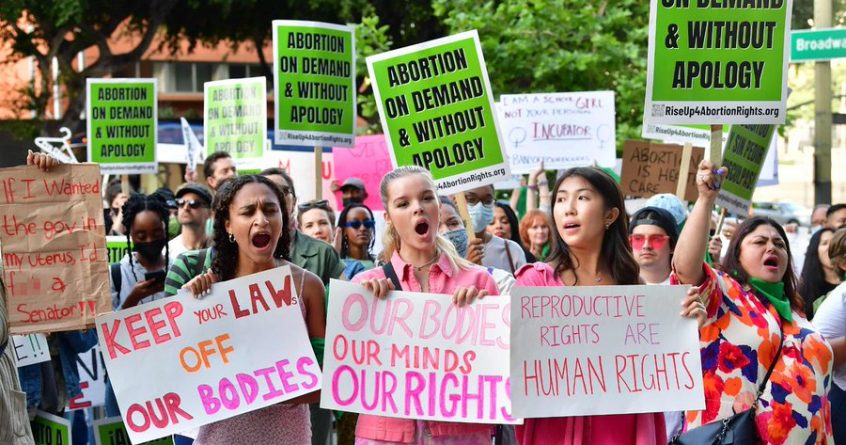Championing a woman’s right to control what happens to her body, including her right to have an abortion, is something I am dedicated to. So I’m appalled by attempts in the US to reject these basic women’s rights.
Believing I have the right to have control over my body is ingrained. In fact, I can’t remember a time when I wouldn’t defend those rights.
When I was a junior doctor (that’s 60 years ago) research first showed that by taking two hormones for a month (which would later become the pill) a woman could control ovulation and thereby her fertility.
For the first time ever she could have babies when SHE wanted to.
This concept appealed to me overwhelmingly and I began taking the two hormones. I think I was the first woman in the UK to take an oral contraceptive and I’ll fight with my dying breath for a woman to be in sole charge of her body. She has the right to choose, and the right to choose is integral to the right to health.
As the US Supreme Court is poised to rescind the law allowing a woman the right to abortion it’s going backwards in terms of human rights.
If the Supreme Court judgement prevails it would deny women the right to choose, even though nearly 60% of Americans support legal abortion.
The action may be happening across the Atlantic but it affects every woman on the planet.
It raises the prospect of the most appalling schism: for some women abortion will be safe and legal, for others it’s a criminal offence.
As Lawrence O. Gostin, director of the O’Neill Institute for National and Global Health Law, Washington DC, says in a BMJ editorial, this would deny reproductive rights to 40 million women of reproductive age in the US with no exception for rape and incest.
Where will we women be if the US backs out of the global trend towards advancing women’s reproductive rights? Inequalities would widen.
Black women are already three times more likely than white women to die in pregnancy and curtailing abortion would disproportionately affect not only women of colour but young women, women on low incomes or living in rural areas, and women in abusive relationships.
For decades the global trend has been to make abortion more accessible not less, supported by international human rights law that stops governments from impeding access to abortion services.
The UN Committee on the Elimination of Discrimination against Women went further, stipulating that denial or delay of safe abortion and forced continuation of pregnancy are forms of gender-based violence.
Ultimately, the US government is treating women’s bodies as the property of the state.
Is this any different from what the Taliban does in Afghanistan?

